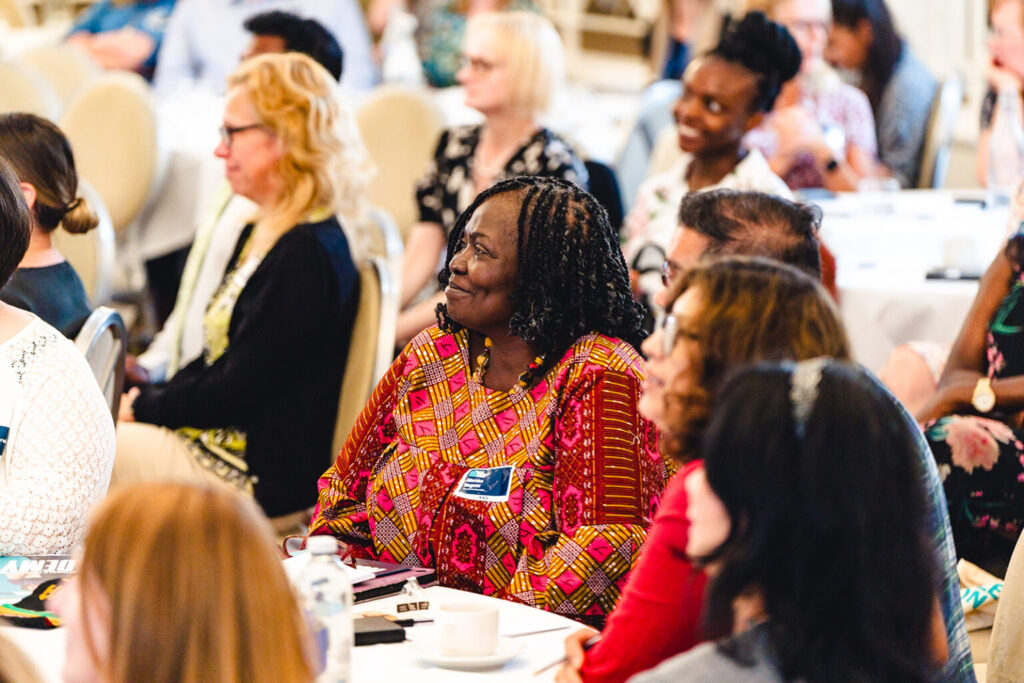Find out about FNF’s new national project – Global Talent, Local Impact – in this blog from Raluca Oaten, FNF’s Research and Policy Fellow, and Lisa Plotkin, FNF’s Head of Policy and Influence.
Internationally educated nurses and midwives (IENMs) are integral to the delivery of safe, high-quality care. They represent almost a quarter of the Nursing and Midwifery Council (NMC) register and bring a wealth of knowledge, cultural insight, and professional expertise shaped across diverse health systems.
For decades, the UK has benefited from this global exchange of talent. Yet as recruitment slows and attrition rises, the challenge is shifting: the question is no longer simply how to recruit IENMs, but how to create the conditions for them to stay, thrive, and lead — while ensuring our engagement with the global workforce remains ethical and mutually beneficial.
That is why the Florence Nightingale Foundation (FNF)has launched a new national project – Global Talent, Local Impact – exploring how the UK can retain, develop, and learn from the nurses and midwives who have chosen to make this country their professional home.
Background context
The UK’s international recruitment efforts have been remarkable. Initiatives such as the 50k Nurses Programme in England and the All-Wales International Recruitment Programme have brought hundreds of thousands of talented professionals to the UK, helping to stabilise services at critical times.
This influx of skilled professionals has done more than fill vacancies. It has enriched our workforce and forged new global partnerships, often led by diaspora communities who continue to share expertise, support professional development, and strengthen health systems both in the UK and abroad. These relationships have helped embed the UK within a vibrant, interconnected nursing and midwifery community — one that values learning, exchange, and mutual growth.
But that progress is now at risk.
In the twelve months to March 2025, 5,276 internationally educated nurses and midwives left the NMC register — a 33% increase on the previous year. At the same time, new international nursing arrivals fell by 30%, the first major decline after years of growth.
And in social care, many internationally educated nurses remain unable to practise at their full qualification level due to visa restrictions, OSCE costs, or limited sponsorship.
As recruitment slows and retention challenges deepen, the networks and partnerships that have flourished through international exchange are under threat. A policy shift towards domestic self-sufficiency — while understandable — risks eroding the very global connections that have strengthened UK nursing and midwifery.
At FNF, we believe that the UK’s approach to international recruitment and retention should form part of a broader, values-based model of global partnership — one that recognises the interdependence of health systems, invests in leadership development, and contributes to global nursing capacity rather than drawing from it unsustainably.
Our Focus
The project will explore three interconnected questions:
- How can we retain excellence? What supports internationally educated nurses and midwives to remain in their roles? We will examine workforce data and lived experience to identify the workplace, cultural, and structural factors that make the greatest difference.
- How can we develop leaders? IENMs bring deep expertise and leadership potential. Yet access to progression opportunities can be limited. Drawing on the experience of our IENM leadership programme alumni, we will explore how leadership pathways can be made more inclusive and how organisations can better recognise and nurture the skills IENMs bring.
- How can we learn globally? The project will highlight how global collaboration — including the work of diaspora networks and reciprocal partnerships — benefits both UK and partner health systems. It will make the case for continued UK investment in ethical international collaboration as a cornerstone of workforce sustainability, not a short-term fix for staffing gaps.
Our Approach
Over nine months, we will combine evidence reviews, a national survey, interviews, and case studies to build a clearer picture of what works. The project will build on all the incredible work that has already been done, for example by Stay and Thrive (1) and by NIPEC, and will be guided by a UK-wide Steering Group and an informal Advisory Board representing professional bodies, service providers, and internationally educated professionals themselves.
Your Voice Matters: Take the National Survey
To answer the above questions, we need to hear from you.
The Global Talent, Local Impact survey is now open to:
- Internationally educated nurses and midwives working across health and social care
- Supporters of internationally educated professionals, including international recruitment and retention leads, clinical educators, workforce planners, and others involved in developing or supporting IENMs
- Members of diaspora networks or associations
Every response will help build a clearer picture of what is working and what must change to retain excellence, develop leadership, and sustain the global partnerships that underpin nursing and midwifery.
Together, we can build a system that truly values the global professionals who sustain the NHS today — and ensure the partnerships they have created continue to shape nursing and midwifery across the world.
